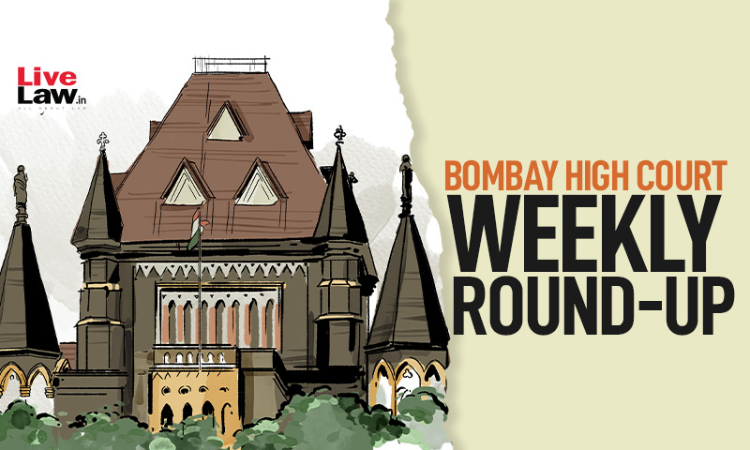Bombay High Court Weekly Round-up: December 25, 2023 To December 31, 2023
Amisha Shrivastava
1 Jan 2024 3:00 PM IST

Next Story
1 Jan 2024 3:00 PM IST
Nominal Index [Citation 607 - 619]Gemini Developers v. State of Maharashtra & Ors. 2023 LiveLaw (Bom) 607Arti Rajesh Karangutkar v. Anna Rocky Fernandes and Anr. 2023 LiveLaw (Bom) 608Chintan Vidyasagar Upadhyay v. State of Maharashtra 2023 LiveLaw (Bom) 609Tata Motors Finance Solutions Ltd v. Naushad Khan 2023 LiveLaw (Bom) 610Amar Sadhuram Mulchandani v. Directorate Of Enforcement...
